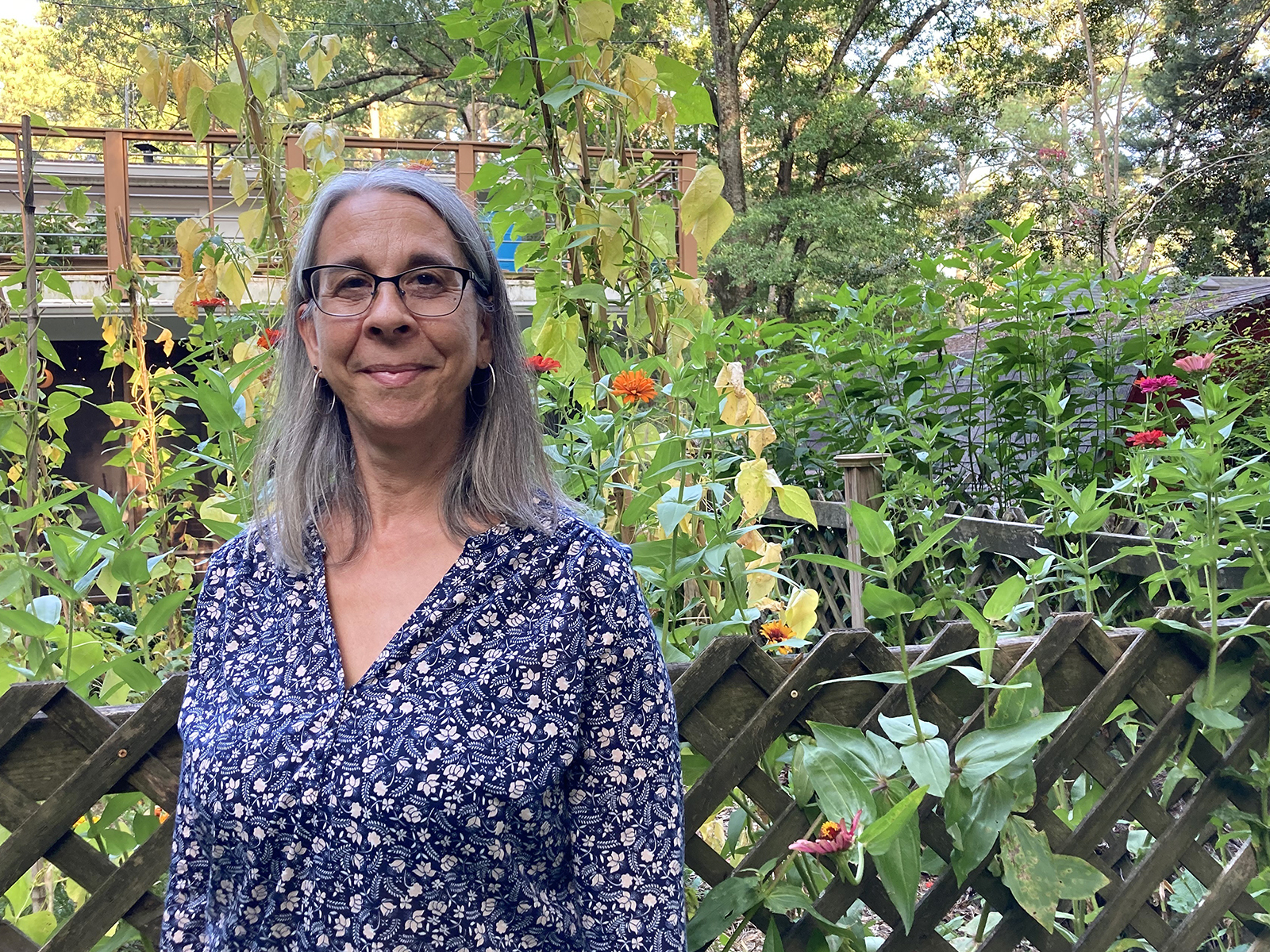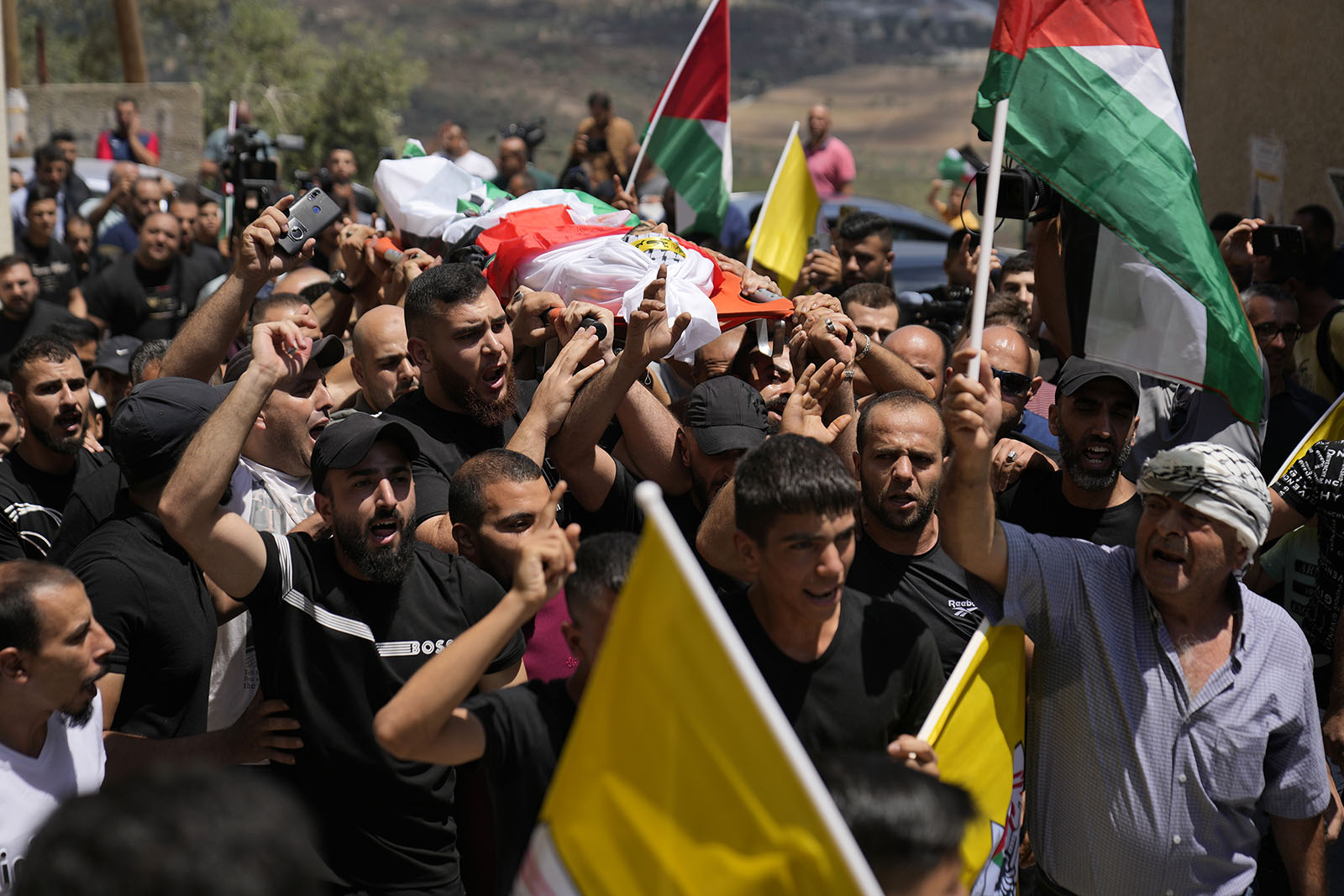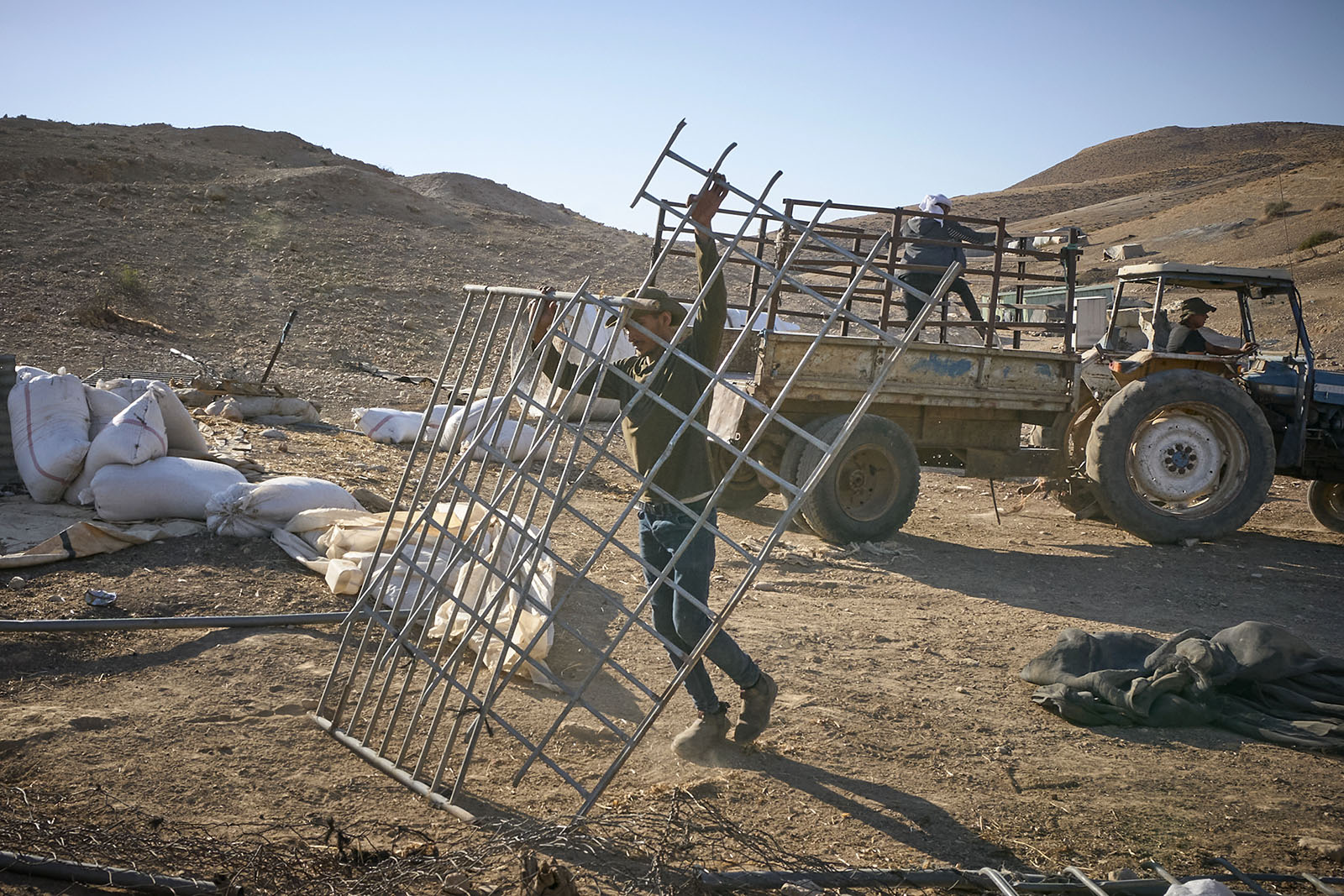In the face of Palestinian suffering, interfaith groups offer a protective presence

(RNS) — When the Israel-Hamas war broke out after Oct. 7, Beth Brockman wasn’t sure she wanted to go back to Israel to protest its ongoing violence against Palestinians. On a trip 16 years ago with a Catholic group, she learned firsthand of Israel’s occupation of the West Bank and its hostility toward Palestinians.
But when the invitation came from Sabeel, a center for Christian liberation theology based in Jerusalem, she reconsidered. A former Peace Corps volunteer, a longtime activist and a committed Christian, Brockman has been horrified by Israel’s 10-month assault on Gaza in retaliation for the Oct. 7 Hamas attack on Israel.
From her home in Durham, North Carolina, she had been keeping tabs on the war in Gaza with emails and appeals from Sabeel, as well as from Christians for Ceasefire, which also sent out an invitation. Last month, she finally decided it was time to act.
“They put out this call for people to come and not only pray with them and walk with them but to stand in solidarity and bear witness in their struggle for justice and peace,” Brockman, 61, said of the invitations. “I was quite taken with it.”
This week, Brockman and 32 others are participating in an interfaith delegation to Israel sponsored by Christians for Ceasefire, Rabbis for Ceasefire and its partner on the ground, the Sabeel Center, which has been doing peacemaking work for years.

Beth Brockman, a spiritual director and a Presbyterian who lives in Durham, North Carolina, in her backyard on Aug. 22, 2024. (RNS photo/Yonat Shimron)
The delegation, which includes some two dozen U.S. Christians, five Jews, two Muslims, a Hindu and a Buddhist, will do more than simply protest the war. It will provide support and accompaniment to Palestinians in the West Bank facing home demolitions, dislocation and violence from Israeli settlers as well as the Israeli army.
Israel’s Gaza war has killed more than 40,000 Palestinians, according to Gaza’s health ministry, and has flattened the Gaza Strip, leaving hundreds of thousands homeless, starving and sick. But violence in the occupied territories has also skyrocketed, with nearly 600 West Bank Palestinians killed since Oct. 7.
Settlers have shot at Palestinians and burned their homes and cars, often as Israeli security forces stand by. Some 2.7 million Palestinians live in the West Bank amid some 160 settlements housing some 700,000 Jews.
Progressive religious groups in the U.S. have responded with a flurry of protests, vigils and civil disobedience, mostly focused on Gaza. But the latest delegations are using a different model of engagement called protective presence, or sometimes, accompaniment.
RELATED: I’m an evangelical against Trump … and genocide
“There is a shift from a kind of delegation rooted in visiting religious sites or education to solidarity and accompaniment and protective presence,” said Eli McCarthy, a professor of theology at Georgetown University and a Franciscan Peace Fellow who was part of a delegation that returned from Israel last week.

Mourners carry the body of Palestinian Rasheed Mahmoud Sadah, 23, who was killed during a rampage by Israeli settlers, during his funeral in the West Bank village of Jit, near Nablus, Aug. 16, 2024. (AP Photo/Nasser Nasser)
The idea is to stand as a kind of buffer between Palestinians and Israeli settlers and deter violence.
The delegation that included McCarthy, which was in the Middle East from Aug. 13 through 20, was able to visit Uum Jamal, a Bedouin community of nomadic Arabs that had decided to evacuate after facing sustained settler violence. Even as it retreated, it faced harassment and intimidation. The 12-member delegation was able to stand between the Bedouins and the Israeli army and settlers while also alerting the U.S. State Department in Washington and the U.S. Embassy in Jerusalem and asking them to exert pressure on the Israeli government to stop the settler violence.
“We found out that the settler violence subsided in this space for the next couple of days and the Bedouins were finally able to move without any further incidents,” McCarthy said.
Other religious and secular groups are using the same tactics. In the West Bank, the Center for Jewish Nonviolence has been bringing volunteers from around the world for nearly a decade to support Palestinians’ efforts to stay on their land and maintain their way of life. There is a growing body of academic study of nonviolent protective presence, sometimes called unarmed civilian protection.
Christians for Ceasefire delegations are also partaking in the conventional forms of protest: McCarthy’s delegation earlier this month held an interfaith vigil with Rabbis for Human Rights, an Israeli group, on the border with Gaza. The delegation helped pack food for Palestinians with an Arab-Jewish social justice organization and prayed outside a West Bank prison that imprisons Palestinian children, among others.

Bedouin sheep farmers in Umm Jamal, a small West Bank village near Nablus, pack up their belongings after being chased off land where they have lived for more than 30 years, Aug. 16, 2024. Israeli settlers harassed and threatened the families at all hours of the day and night, leading to the Bedouins choosing to leave the land. (Photo © Paul Jeffrey/Life on Earth Pictures)
But the work of accompaniment, they hope, offers another way to provide comfort, de-escalate conflict and save lives.
“Historically, the presence of the international community reduces violence and provides courage to those under threat,” said the Rev. Darrell Hamilton, a pastor at First Baptist Church in Jamaica Plain, a neighborhood of Boston. “I want to lend my effort and my voice, my body to that cause.”
Hamilton, who is a part of the interfaith delegation now in Israel, said that as an African American and as a leader in a church that voted to be an anti-apartheid congregation, it was especially important to him to be in what he called “deep solidarity” with the Palestinian people.
It’s risky work, acknowledged Hebah Kassem, a Muslim from Arlington, Virginia, who is part of the delegation. Kassem’s parents were born in a Lebanese refugee camp after their parents fled Palestine in 1948. She found out about the delegation through Rabbis for Ceasefire, which is a partner.
“We’re aware of the risk and we know that this isn’t easy, but it’s also the everyday life of Palestinians here,” Kassem said. “It’s super important that we can stand in solidarity with them.”
For Sunita Viswanath, executive director of Hindus for Human Rights, who is also on the delegation, it’s an act of faith, a prayer for the world as a sacred family.
Beth Brockman also sees it as an act of hope.
“It would be so easy to kind of get despondent about the issue,” she said. “This is maybe my way of kind of remaining hopeful.”
RELATED: Arab evangelical Christians invite Zionist evangelicals to restore ‘one body in Christ’
You Might Also Like
New book calls for authentic engagement and equity in organizations
The Nine Asks by Kimberly Danielle Organizations have a responsibility to ensure that people who come there to work, worship,...
‘Holy Hurt’ is Hillary McBride’s field guide to the shattering impact of spiritual trauma
(RNS) — Trauma is a lot like having a shard of glass in your hand, explains clinical psychologist Hillary McBride....
So You Married a Priest? + Beth Allison Barr
It’s ministry by marriage. Did you know there are piles of guidebooks meant to help women excel at...
Abyssinian Baptist Church welcomes dismissal of pastor candidate’s discrimination suit
(RNS) — A federal judge has dismissed a gender discrimination lawsuit brought against Abyssinian Baptist Church by a onetime candidate...








